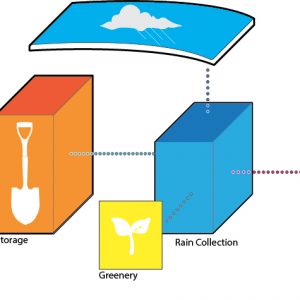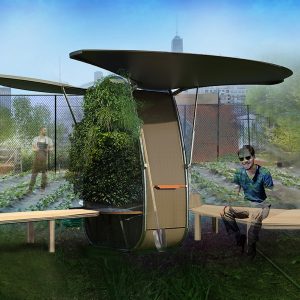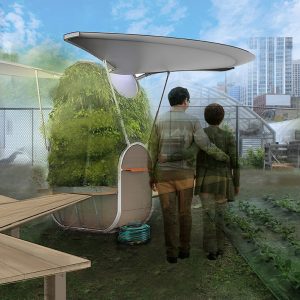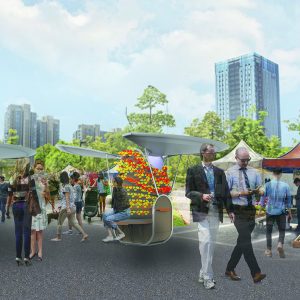Product name: Anthro-shed
Theme: Sustainability
Topic/problem description:
The state of agriculture in the 21st century is troubled by the rapid changes in technology produced in the Industrial Age. Both the new climate and cultural paradigm has placed the state of food production into question. Due to the industrial structure of specialization, the foundation of food production has become detached with the average person’s experience of food and groceries.
One way of combating this phenomena has been the creation of urban farms. Such farms can counter ecological erasure, produce food in undernourished communities and provide social infrastructure. Unfortunately, the urban farm movement is undermined by the same financial precariousness that traditional farms experience. Farmer’s markets and the winning of grant money do not always provide sufficient funds or independence (Maureen, 2009). Successful examples expand the farm’s function beyond selling crops.Social events and classes on gardening can be hosted in parallel to agricultural practices by farm operators (Brooklyn Grange, 2019). These methods are folk forms of service design that originate from the farmer’s own skills and experiences. The designs are also directly informed by the farm’s physical and operational capacities. For example, a rooftop farm will have different possibilities and restrictions than a ground level site. By visiting community gardens and historical reconstructions, I have seen some of the challenges of combining these visitor based functions with farming operations. Such operations from planting, maintenance to harvest are facilitated by tools and various storage methods at a small, makeshift scale. These physical artifacts are generally specific to each function, for example: tool bins, rain barrels and shelters are very didactic. Simply improving each one of these products would be redundant. At a time when social norms, climate and rapid technological changes are fluctuating; the typological approach to product design will not suffice for innovation.
With these considerations in mind; How can analog infrastructure support the longevity of urban farms?
https://youtu.be/I_Q20joKTpY
Solution:
Given the extreme specificity of a given urban farm’s business and location context, designing a service for a farm would be too assertive. Providing a physical object that provides a starting point for a given farm would be wiser. The Anthro-shed combines agricultural practices and hospitality services in a mobile infrastructure. This dichotomy is broken into 4 basic considerations that will aid the farm’s self-reliance: water, crops, work and socialization. Its system accommodates these opposing functions in a radial organization with the universal need for water at the core and branching out into specific social experiences. Rain collected from the roof is stored in the core tank. In order to reduce the energy consumed by the system, the water will be used by way of a gravity fed hose instead of a pump. To the tank’s sides are storage cabinets for gardening tools. These volumes are encased in an envelope of biocomposite laminations which hold live wall plant holders. The plant holders come in the form of belts of geotextile bladders that hold growing medium such as soil and Perlite. Watering these plants is done through a drip irrigation system fed by the rain barrel.
These features make up a single structure to be inserted into various farm or garden contexts. Once deployed, the Anthro-shed is intended to be transformative to its environment by being the anchor for public furniture additions. The form of these benches and tables are decided by the farm operators themselves, utilizing local materials either bought at hardware stores or salvaged. To encourage this creativity and self-reliance, the shed includes instructions for constructing modular furniture out of standardized lumber units. Through the life of the farm, Anthro Shed intends to respond to the farm’s changes over time and continue to serve both farmers and visitors alike.
References:
Brooklyn Grange. (2019). Retrieved April 29, 2020 from
https://www.brooklyngrangefarm.com/our-farming-practices.
Maureen, & Post, M. (2009, September 11). Sweet Water Organics lures local fish and produce.
Retrieved from https://onmilwaukee.com/market/articles/sweetwaterorganics.html.




